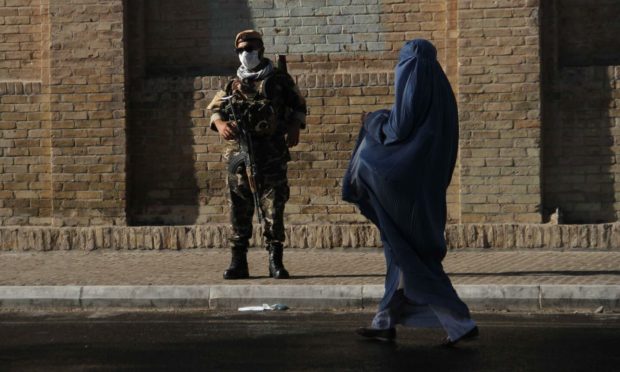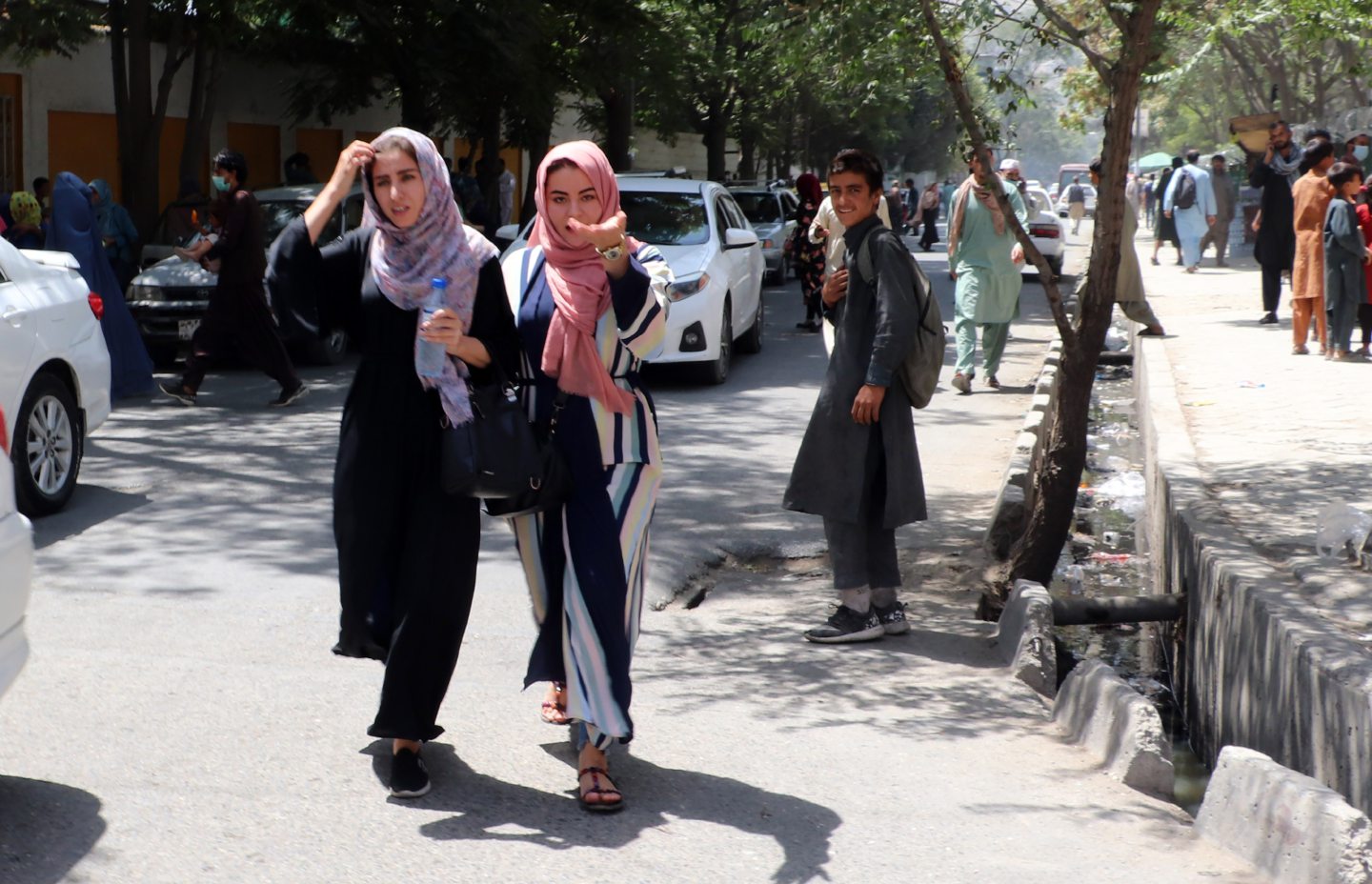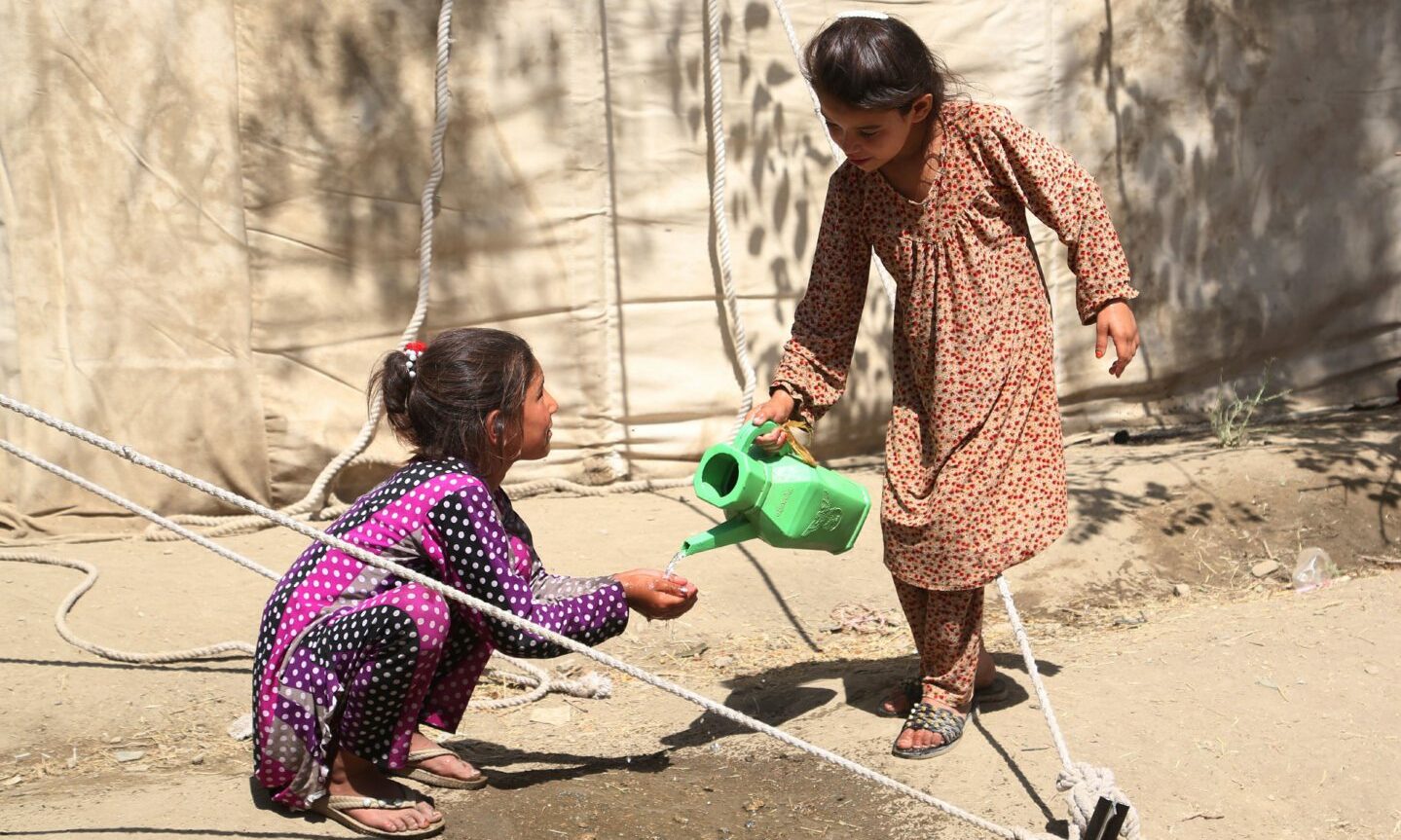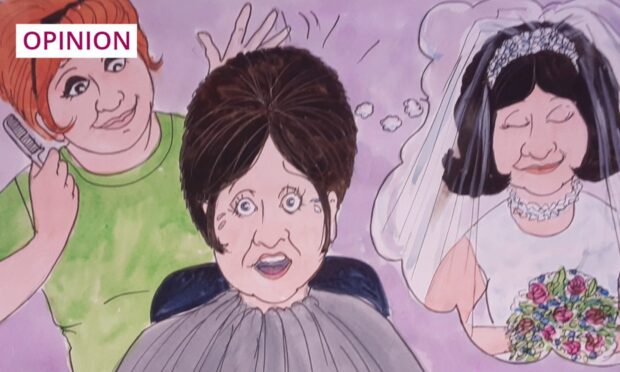I imagine it sometimes – what it must feel like to be physically submerged by swathes of dark cloth, to mentally bear the weight of all that oppression.
Face masks have given all of us a glimpse: that now familiar rush of heat and hyperventilation, of claustrophobia that starts in the body but eventually consumes the brain. But when I imagine wearing a burka, the worst part of the vision is the sense of being merely a shadow, of looking out at a world rather than belonging to it, of being an observer and not a participant.
The sudden appearance of rails of burkas in Afghanistan’s shops, and the desperate fear of young women who were not alive in the 1990s when the Taliban last governed, reminded me of Christina Dalcher’s dystopian novel, Vox – described as a reworking of Margaret Atwood’s The Handmaid’s Tale – in which women are suddenly limited to 100 words a day and electronic tags administer shocks if they dare say more.
The day-to-day lives of Afghani women will change drastically
Afghanistan is a human tragedy in so many ways: the shocking abandonment of countless Afghani men who assisted British and American forces, left now to Taliban “justice”; the dark clouds of men swarming like insects around a giant US military aircraft, some clinging to the wheels as it took off – with inevitably tragic results.
A heartbreaking vision of human desperation. But make no mistake: when the roads to Kabul airport are clear of abandoned cars again, when the blood of victims has dried on the scorched ground, it is the day-to-day lives of Afghani women that will change most in the new normality.
Some defiantly refuse to buy burkas, accepting incarceration at home instead. Others describe being forced to tear up university qualifications and abandon their dreams.
A female television journalist expressed her terror of becoming one of the women who have been captured, raped and enslaved, saying the Taliban will seek vengeance on women who have led a public life.
This week, I heard of one 23-year-old journalist – let’s call her Samira – who dresses in jeans and a casual headscarf that usually slips to her shoulders, and is now terrified for her life. She only knows of Taliban governance through her mother, who was beaten for going to the shop alone when she was pregnant with Samira.
Subjugation of women is the last acceptable face of discrimination
It feels, sometimes, as though the subjugation of women is the last acceptable face of discrimination. Not so very important. Not even recognised, often.
In the UK, the mass killing in Plymouth has thrown up some interesting arguments about the significance of misogyny. Gunman Jake Davison was connected to “incel” culture – involuntary male celibates – who blame women for their predicament.
The voices of half the population can be silenced – not to 100 words a day but effectively to zero words a day, if it’s in a public forum – and it’s not political? On Planet Zog, maybe
Was his violence a terrorist incident? A police statement said not – as if we should all be reassured that the atrocity was not about religious, political or cultural differences, but “only” about a white man filled with hatred of women, including his own mother.
The trouble with all this reassurance is that, for a start, the incel movement has demonstrably clear links to extreme right wing terrorism. But media commentators have also suggested that misogyny is not terrorism because it lacks a “political aim”.
Seriously? We need only look at Afghanistan to understand how political misogyny is.
Voicelessness is the enemy of democracy
The overnight erasure of women’s images from billboards; their exclusion from public office; the denial of their freedom of movement; the threat to their education… all this is not political? The voices of half the population can be silenced – not to 100 words a day but effectively to zero words a day, if it’s in a public forum – and it’s not political? On Planet Zog, maybe. On planet earth, I’d say it’s about as political as politics gets.
The dictionary definition of “politics” does not only include reference to government, it includes “activities that are related to getting or keeping power”. It was political when
Hitler denied rights to Jews, to gay people, to Romanies, because any view of society in which one group has fewer rights than another – including one where women are denied participation – is a political vision. Voicelessness is the enemy of democracy.
Afghanistan does not feel irrelevant to my life as a Western woman because the country proves just how fast cataclysmic change can happen. Indeed, I have no difficulty imagining what it feels like to wear a burka, or to be forced to behave in a particular way because, in small ways and big, Western women know about societal silencing.
A hundred words a day? That is not dystopian science fiction but close to reality in parts of our world, right here and right now.
Catherine Deveney is an award-winning investigative journalist, novelist and television presenter













